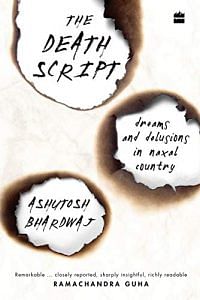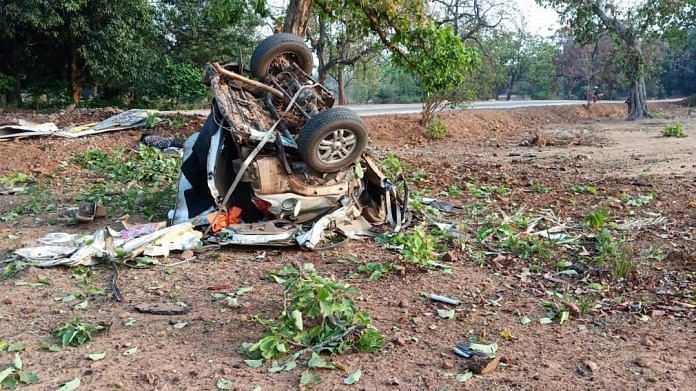What I’m going to tell you now, I have never shared with any outsider. It is not even recorded in the confidential files of my department.
Yes, I ensure the surrenders of innumerable Maoists in Bastar. I also recruit surrendered Maoists as auxiliary constables in the police force. I deploy some of them as gopaniya sainiks, some others I take with me to the jungle for operations. It is mandatory to record the surrenders on official files immediately and inform the Raipur police headquarters, which then submits a report to the Union home ministry in Delhi. But I do not follow either of these directives. In fact, I cannot.
Those who claim that I violate laws do not comprehend the law. Dantewada is not Delhi, nor is its policing the same. The Code of Criminal Procedure mandates that a person must be produced before a magistrate within twenty-four hours of the arrest. This is impossible in Bastar. Say my boys have gone for an operation towards Gompad or Kutul. If they catch anyone, it may take up to forty-eight hours to bring him to me, to the city. If I pick up somebody, will I first interrogate him, prise all the secrets out of him, or produce him before a goddamn magistrate?
Also read: BJP’s cozy nexus with Maoists in Chhattisgarh flourishes despite leaders’ murder, arrest
If Ganapathy, the top boss of the Maoists, or Bhupathi, their politburo member, are caught, should I dutifully take them to a court, or keep them at a safe house for months and extract their entire history? Even if a divisional committee member is detained, I will not let anybody get wind of it, will grill him for weeks, and only when he has been completely drained, fit to be discarded, will I produce him before the media and the courts.
I follow a similar tactic with surrendered Naxals. How can I officially declare a surrender on the day the outlaw arrives at my door? I will keep him for weeks, months, squeeze all the juice out of him, and disclose him only after he is empty.
I am also aware that all those registered as surrendered Naxals on government papers are not Naxals. Many of them are villagers and Sangham members – ground-level, unarmed supporters. But who’s complaining? Do I kill anybody? Lock them up in a police station?
I merely bring some tribals from villages, declare them as surrendered Naxals, get their photographs clicked by the media, and return them with 2,000 rupees and a bottle of country liquor, thereby creating the possibility that they may feel obliged to me and rat out the Naxals, or that the insurgents will begin doubting them for visiting the police and bringing home money and a bottle in lieu of surrenders that were never there. I thus try to create friction between the villagers and the Naxals.
Also read: Arrested Dantewada BJP leader worked with Maoists for 10 years, says Chhattisgarh police
War is not fought on the battlefield. It takes place on the chessboard of your mind. If I have my way, I can eliminate every single Naxal from Bastar.
Some wise people concede me the right to script my tale, but wonder why I deploy the surrendered cadres in my force and send them for operations. What if a Naxal had surrendered only to deceive me, and he suddenly turned around in the middle of an operation in the jungle? My entire party would be gone in a second. Several surrendered Naxals have escaped with AK-47 rifles belonging to the police. Police barracks narrate stories of Naxal ambushes that annihilated my forces, ambushes in which surrendered Naxals who had accompanied the police for an operation suddenly switched sides in the jungle.
I admit the risk, but I have no other option. I will have to recruit surrendered Naxals. I am aware that the rehabilitation policy for surrendered cadres invalidates my acts, that it is indeed evil to hand over weapons to a surrendered Naxal and dispatch him to the forest with my encounter team, that I should give him training for jobs like that of a telephone mechanic, a carpenter or an electrician, that I should never keep him in the police barracks but ensure him a home and a livelihood instead. I am aware that the Naxals kill only those surrendered cadres who join the police. They never harm the ones who return to their villages or begin farming after their surrender.
But perhaps you are not aware that life is awfully cheap in Bastar. It is not guaranteed by a government document called the Constitution, but hinges on the bullet from a rifle. If it touches the right spot, a single bullet will swiftly make a corpse out of a man. A bullet is never cruel or unjust. The finger that presses the trigger of a rifle is erroneously taken to be merciless. In fact, it is merely exorcizing its fears. When a soldier caught in the jungle at night frenetically swirls around his rifle, releasing ten bullets per second and turning eight-, fourteen-, fifteen- and twenty- two-year-olds into corpses, he is merely foreclosing the possibility of becoming a corpse himself. A murder is recorded the moment he pierces the chest of a corpse with a knife and wipes the red beads gleaming on its edge with the dead body’s clothes.
The difference between the dead and the living is a matter of chance in Bastar. In Bastar the hunt is for the dead, not for the living. My police force does not do it often, this corpse-hunting. But that’s a different tale. For later.
A surrendered Naxal knows all the paths and secrets of the forest, the hideouts of Maoist commanders, the many ways to corner them. His worth as a soldier in the battle against Naxals is inestimable. Yes, it endangers his life, but my life also hinges on his continued loyalty in the jungle. A life in the jungle rests on the palm of a hand. He moved in the jungle for years with the looming threat of police attacks, where he could be killed at any time. He faces lesser danger with me than he did as a Naxal. I will ensure good medical care if he is injured by a bullet from his former comrades, and monetary compensation to his woman in the event of his death.
I have to take risks – for the liberation of Bastar, for the Indian Constitution. But they are well calculated. I never send him to operations immediately after his surrender. I keep him under observation for months: where he goes, who he meets, what he eats. I feed him chicken and mutton, and ply him with liberal doses of liquor so that his senses, hardened by years in the jungle, loosen up. I give him a mobile phone and keep his number on surveillance. I deploy him on the front line, my rifle pointed at his back, a fact he is not unaware of. He is also aware that his woman remains under police watch (she is always under my watch anyway) until he returns from the operation. We suspect each other, and this mutual distrust underwrites our lives.

This excerpt from The Death Script: Dreams and Delusions in Naxal Country has been published with special permission from Harper Collins.
Also read: Bastar has remained Covid-free. That’s because social distancing is tribal norm, experts say



